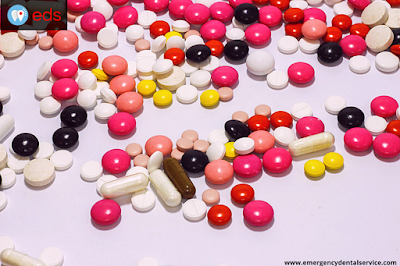Keep in Mind that Your Medications Can Affect Your Mouth
Don't you think we are a little too easy on our dental care? Popping in pills and not thinking about their effect on our oral health is highly stupid. When sweetened food can harm our teeth, then medicated medications are way too effective that somehow affects our oral health. Medicines or injections are undoubtedly prescribed for our better health, but everything we consume has a side-effect. Taking pills also affects our body where our oral health also suffers. We might never notice, but do you remember, the last time you visited the nearest emergency dentist, they ask about recent or ongoing medications. They surely understand the impact but cannot take our overall health into their hands.
Well, here are some most common effects caused by frequent medications:
· Xerostomia is a state where our mouth gets dehydrated because of medications. There are a few drugs that dry out our mouths and reduce the saliva in our mouths. It can lead to unexplained inflamed and irritated mouth tissues, thus triggering infection, tooth decay, and gum diseases.
· Not just edible medications, but a few inhalers used by asthma patients can affect our mouth. It can cause yeast infections in the mouth, known as oral candidiasis. Rinsing your mouth every time after using the inhaler can avoid getting yeast infections.
· The build-up of gum tissue after using a few medicines is known as gingival overgrowth. Simply put, the gum tissue gets swollen up and covers the teeth. The enlarged gum can become a home to harmful bacteria that become a severe issue when oral health arises. Consulting emergencydental care before starting any heavy medication can be a solution for such unexplained oral diseases.
· The inflammation of the moist tissue lining in the mouth and digestive tract is called mucositis. The problem is usually caused because of chemotherapy if taken. Doctors explain it to be a side-effect of chemotherapy—drugs used during the therapy damage the cells responsible for making mucous membranes. The oral disease is painful and leads to swelling in the mouth and tongue that triggers excessive ulcers, bleeding, and pain.
We are not in the habit of being in continuous touch with our emergency dentist 24/7. Before starting with any heavy medications, it is imperative to consult your dentist and seek their advice. Handling two-body issues at a time can be infuriating and problematic.

%20900-0633%20-%202025-03-12T130429.775.png)


Comments
Post a Comment